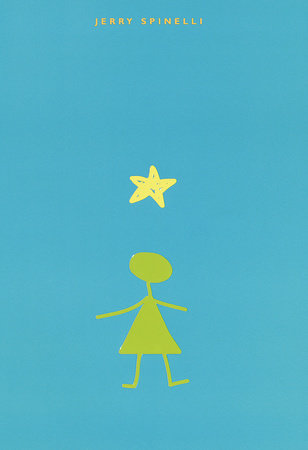Stargirl Movie Tie-In Edition Reader’s Guide
By Jerry Spinelli


1. As the saying goes, "love is blind." How is this truly the case with Leo and Stargirl? Looking back, how can you tell that Leo was falling for her? And does he stay in love with her, even after she moves away?
2. Professor Archie Brubaker is the voice of reason throughout the novel. Archie has many thoughtful insights into the personality of Stargirl, and at one point says about her: "You’ll know her more by your questions than by her answers. Keep looking at her long enough. One day you might see someone you know." Now that you’ve finished the novel, what do you think Archie means by this statement?
3. While Stargirl is a guest on "Hot Seat," Kevin asks her why she changed her name. Do you accept her reason why she did this? How is "Stargirl" an ideal name for her? Think about the possibility of changing your name several times. Do you think your name is an integral part of who you are, or can you imagine yourself with another one?
4. In the beginning, Hillari Kimble seems to be the only person who openly dislikes Stargirl. But then others begin to feel the same way as Hillari. Do you think that groups of people need a leader, like Hillari Kimble, to turn opinions against another person?
5. Do you, as a reader, like Stargirl? If you were a student at Mica High, would you reach out to her like Dori Dilson, or reject her like Hillari Kimble? Do you think the students of Mica High are ultimately too harsh on Stargirl?
6. Popularity, fitting in, and "sameness" are all key themes in Stargirl. Find places in the novel that reinforce these themes and discuss. Do you think Stargirl ever wanted to be popular? How might she define popularity?
7. After Stargirl changes back to "Susan," Leo says "she looked magnificently, wonderfully, gloriously ordinary. She looked just like a hundred other girls at Mica High–I had never been so happy and proud in my whole life." How did you feel when you read this part of the novel?
8. Author Jerry Spinelli plays two major events in the novel off of each other: the basketball championships and the oratorical contest. After Stargirl wins the oratorical contest, Leo says that "the cheering is as wild as that of the crowd at a championship basketball game." Stargirl is the focus at both events but in very different ways. How is she rejected at one and accepted at the other? And how does this acceptance ultimately lead to rejection?
9. The Ocotillo Ball at the end of the novel represents a turning point. Do you think Stargirl made a deliberate attempt to say good-bye at the ball? What do you make of the students’ behavior at the ball, and what does this tell you about the student body of Mica High as a whole?
10. Archie says about Stargirl, "Star people are rare. You’ll be lucky to meet another." Do you think Leo was grown-up enough for his relationship with Stargirl? How about the students of Mica High? Will Leo ever figure Stargirl out?
11. What is the irony at the end of Stargirl? Is Stargirl popular after all? What happens to the "popular" kids in the story–do they stay popular?
Just for joining you’ll get personalized recommendations on your dashboard daily and features only for members.
Find Out More Join Now Sign In